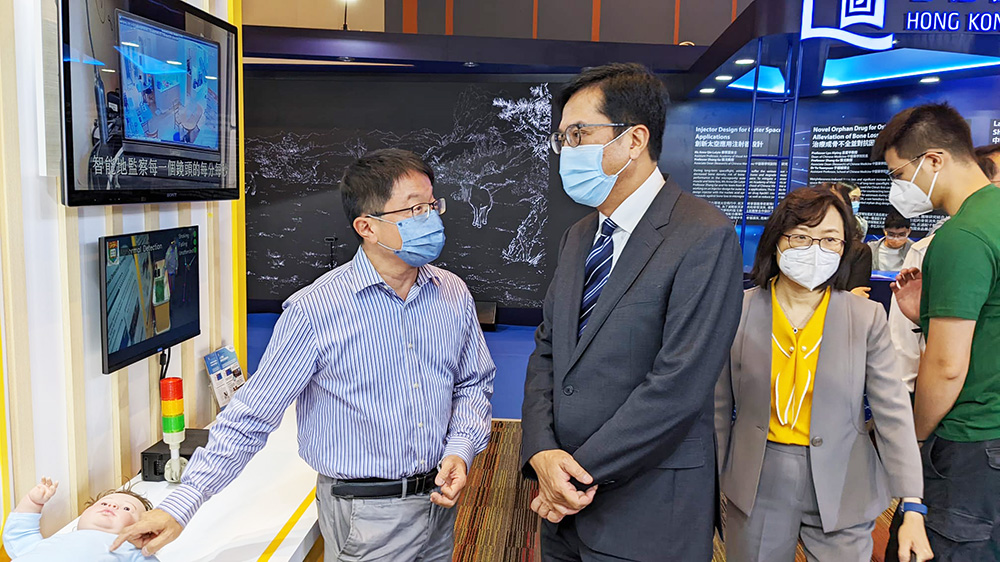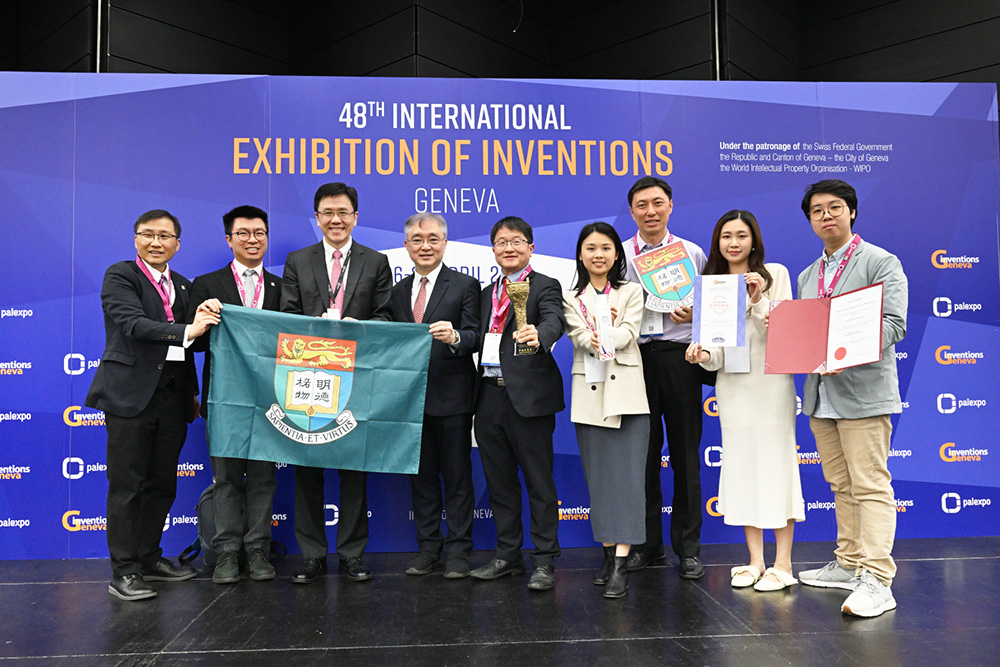May 2023 | Volume 24 No. 2
Spotting Abnormalities, Saving Lives
The opening page of the Sports Artificial Intelligence Lab (SAIL) website announces ‘Artificial Intelligence – The Future of Everything’. ‘Everything’ is a big term but may be viewed as being synonymous with the breadth of the Lab’s scope, given that an AI system that SAIL originally developed to monitor swimmers for potential signs of drowning has now been adapted to monitor for signs of child abuse in early learning centres.
“We were first approached by the Hong Kong Society for the Protection of Children in April last year to explore using our AI technology for child safety monitoring in their children’s home,” said Dr Wilton Fok, Director of HKU Sports AI Lab. “The project was quite successful and it became a reference for the Social Welfare Department and other children’s homes and centres.”
SAIL was originally set up to focus on developing AI solutions for sports safety and performance analysis. The Lab’s first major project was Smart Swim, a drowning detection system which uses AI abnormal detection technology and deep learning via computer vision to detect potential drowning cases in swimming pools, and triggers an alert. This project was awarded the Hong Kong Information and Communications Technology Award (HKICT Award) in 2021.

Dr Fok (left) demonstrating the AI abnormal detection technology to the Deputy Financial Secretary Mr Michael Wong in the InnoCarnival 2022.
Motion movement
Their second was RoboCoach, a real-time feedback system for golf and yoga which uses a Human Pose Estimation algorithm to identify motion movement and enables users to learn and correct their own posture and movement when practising a golf swing or doing a yoga pose. It can also be utilised as an evaluation tool for teachers and coaches. The ‘RoboCoach AI Exercise Mobile Apps’ won the Silver Award at the 2022 HKICT Awards under the category of ‘Smart People (Smart Education and Learning)’.
The child abuse monitoring system is based on technology that SAIL developed for Smart Swim using AI that analyses abnormal situations in human posture in swimmers. “For Smart Swim, the position, orientation and posture of the swimmer are analysed and an alarm is triggered if any dangerous situation is detected,” said Dr Fok. “Similar technology can be used to monitor children in a children’s home. If a child is in a risky location, or there is abnormal movement or action, the caretaker or their supervisors can be alerted.
“Key points of the human skeleton, such as head, shoulder, elbow, wrist, knee and ankle, are monitored. The geometry of the body can be calculated to classify the posture and actions. The posture and motion of multiple persons can be detected to predict if there is any potential risk – for example, being frightened, or violence occurring. The position of the baby or child can also be located and analysed within the surrounding environment to detect if there are other risks, such as being dropped on the floor, exist.”
The technology is licensed to a TSSSU spin-off tech start-up called Hong Kong Univisual Technology Intelligent Ltd through HKU Versitech Ltd and the pilot system has been deployed in several social welfare organisations, such as the Hong Kong Society for the Protection of Children and Hong Chi Children Home. “It has proven to be an effective tool that can help caretakers spot any risky or unusual behaviour,” said Dr Fok.
New scenarios
SAIL is continuing to work on refining and improving the system. “AI requires large amounts of data to train the model,” said Dr Fok. “We are looking into some new scenarios where the existing data is not enough, and nor is the initial model accurate enough. But we are developing an online self-training model so that the system can learn from its mistakes automatically and self-improve – just like a clever boy who can learn and prove himself and turn into a smart man.”
The project team would also welcome the chance to transfer this technology to Mainland China and overseas. Opportunities in the Shenzhen branch of the Hong Kong Science and Technology Park are currently being explored.
In April, the system – entitled ‘Artificial Intelligence MGF Network for Anomalies Detection’ – received major recognition when it won two grand prizes and a gold medal at the 48th International Exhibition of Inventions of Geneva, a prestigious event dedicated to introducing new inventions from industry and universities around the world and demonstrating them to manufacturers and financiers.

‘Artificial Intelligence MGF Network for Anomalies Detection’, developed by Dr Wilton Fok’s team, won the Invention & Innovation CAI Award (China Delegation), Prize of the Delegation of Malaysia, and a gold medal at the 48th International Exhibition of Inventions of Geneva.
Key points of the human skeleton, such as head, shoulder, elbow, wrist, knee and ankle, are monitored. The geometry of the body can be calculated to classify the posture and actions. The posture and motion of multiple persons can be detected to predict if there is any potential risk – for example, being frightened, or violence occurring.

DR WILTON FOK

